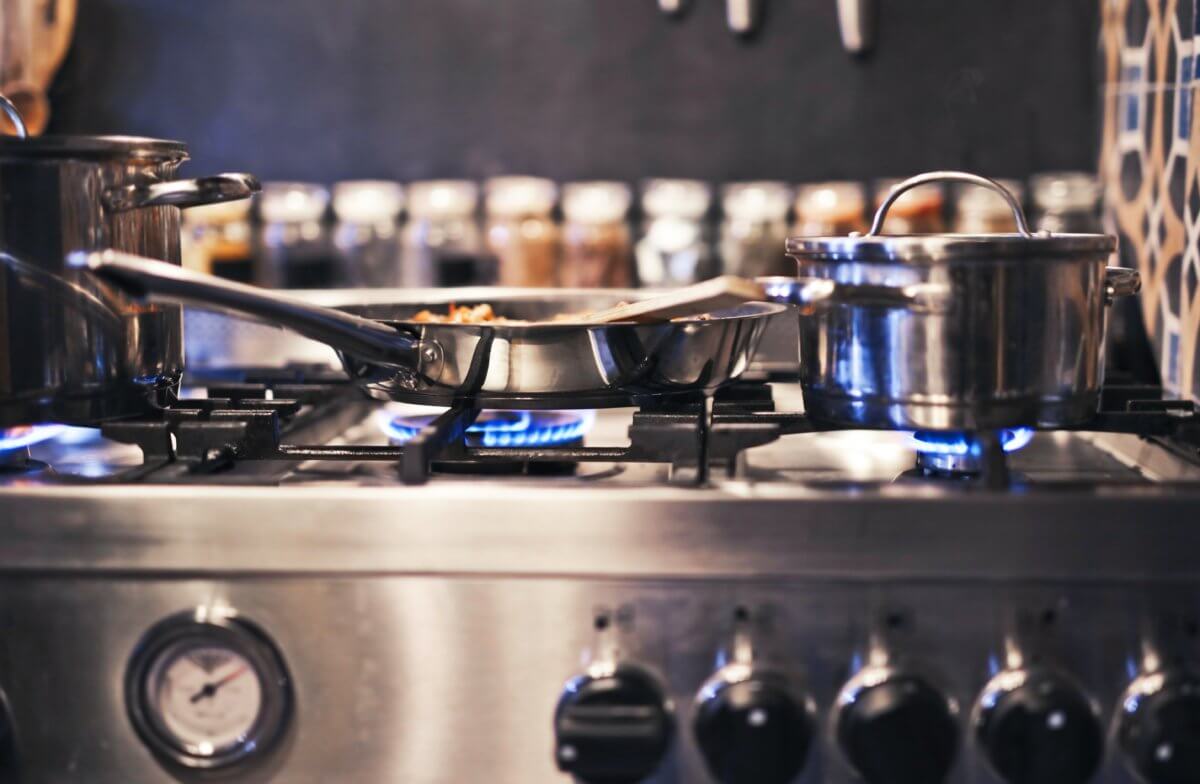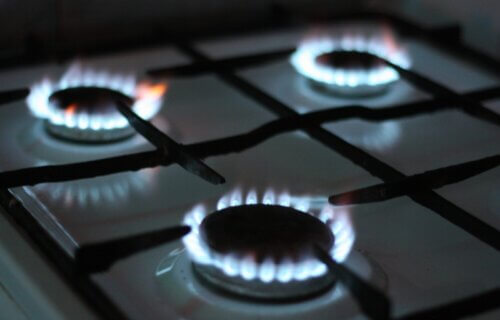STANFORD, Calif. — Whenever you light a gas stove, your chances for blood cancer could be going up, a new study warns. Researchers from Stanford University say these stoves release benzene, a chemical linked to increased risks of leukemia and other blood cancers. They found that a single gas stovetop burner or oven set to 350 degrees Fahrenheit can raise indoor levels of this chemical more than secondhand smoke. Benzene can even stick around for hours, traveling all throughout the home.
“Benzene forms in flames and other high-temperature environments, such as the flares found in oil fields and refineries. We now know that benzene also forms in the flames of gas stoves in our homes,” says study senior author Rob Jackson, the Michelle and Kevin Douglas Provostial Professor and professor of Earth system science at the Stanford Doerr School of Sustainability, in a university release. “Good ventilation helps reduce pollutant concentrations, but we found that exhaust fans were often ineffective at eliminating benzene exposure.”
The team even found that concentrations of benzene measured in bedrooms, which are typically further away from the kitchen, measured higher than national and international health benchmarks. It’s even more worrisome that range hoods and exhaust fans don’t seem to lower the concentrations consistently.
Scroll down to see 4 ways to cut your exposure to chemicals from gas stoves

This paper is the first to analyze benzene emissions when a gas stove or oven is in use. Previously, studies have analyzed leaks from stoves when they are off and didn’t actually measure benzene concentrations. Another study from Stanford also found that gas-burning stoves inside U.S. homes leak methane and expose users to pollutants like nitrogen dioxide, which can trigger respiratory problems. A 2013 meta-analysis found that children who live in homes with gas stoves have a 42-percent greater risk of having asthma than children who didn’t, and a 2022 analysis found that 12.7 percent of childhood asthma in the U.S. is attributable to gas stoves.
This study found that gas and propane burners and ovens released 10 to 50 times more benzene than electric stoves. Induction cooking surfaces didn’t emit any detectable amounts at all. During combustion, the rate of emissions were hundreds of times higher than benzene emission rates noted from other studies from unburned gas leaks in homes. The researchers also looked at whether certain foods being cooked emitted benzene, finding that none were released when pan-frying bacon or salmon. Emissions were linked to fuel used, not food cooked.
“I’m renting an apartment that happens to have an electric stove,” says study lead Yannai Kashtan, a graduate student in Earth system science. “Before starting this research, I never thought about it twice, but the more we learn about pollution from gas stoves, the more relieved I am to be living without a gas stove.”
Not everyone can live without a gas stove or can afford to completely upend their kitchen to convert to electric, but there are effective ways to reduce your exposure:
- Use portable induction cooktops, which can be found for under $50.
- Use electric kitchenware, like tea kettles, toaster ovens, and slow cookers.
- Where available, utilize state and local rebates as well as low or no-interest loans to offset the cost of replacing gas appliances.
- Federal tax credits are available now, and federal rebates will soon become available to help offset the cost of replacing gas appliances.
The findings are published in the journal Environmental Science & Technology.


They should’ve come up with that before announcing against gas, not after people resisted the scam. How stupid do they think people are?
The Bribem administration has made gas stoves a political matter. The “study” is from Stanford California school of communism. It’s no surprise that this study is released in support for the current regime in DC. The study’s conclusions are suspect.
I’ve been in homes with gas stoves and gas furnaces for 80+ years. No leukemia here. Just another click bait scare tactic to go to article and get all the ads.